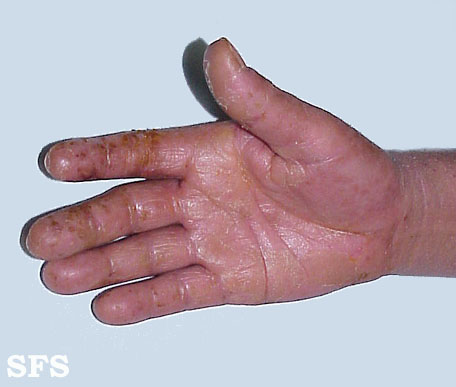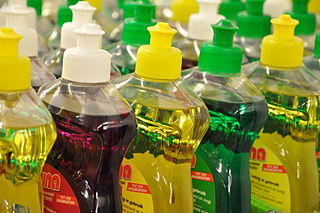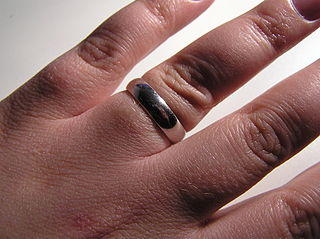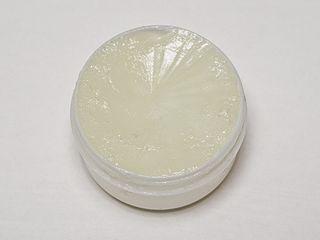How To Prevent ‘Dishpan Hands’ Dermatitis (Eczema)
Dishpan hands is a problem for any person who regularly washes dirty dishes by hand. It is actually not only a phenomenon with washing dishes. The same type of skin condition can occur when you wash clothes by hand or partake in other daily chores involving prolonged exposure to soap and water. Some people are naturally more sensitive than others and may develop dishpan hands from just washing for a week or so. Others may wash lots of dishes everyday for months or years and not experience a problem. There are number of factors that play a part in dishpan hands eczema and need to be attended to in order to avoid the problem.
The medical term for dishpan hands is irritant contact dermatitis. This means that substances that make contact within the skin of the hand cause irritation and inflammation. It can affect any person although some people are more sensitive than others. When the substances trigger an immune reaction (allergy) it is then known as allergic contact dermatitis. Only certain people with a history of allergies or allergic tendency will suffer with this type of dishpan hands eczema. The four main factors that contribute to skin irritation, either individually or collectively, is soap, water, perspiration and the food remnants on the dirty dishes.
While using a dishwashing machine or getting somebody else to do your dishes would be ideal, it is not an option for every person. Therefore you should look at taking simple everyday measures to avoid it. Dishpan hands are more likely to be a problem for you if you have pre-existing skin conditions like tinea manuum (hand fungus/ringworm), dyshidrotic dermatitis (pompholyx) or psoriasis. Remember that if dishpan hands eczema has developed then it should be treated and managed by a dermatologist.
Picture sourced from Dermatology Atlas Brazil courtesy of Samuel Freire da Silva, M.D.
Use Rubber Gloves When Washing
Rubber gloves are one of the best ways to prevent dishpan hands. It is waterproof and therefore your skin does not make direct contact with the soap and water. The rubber gloves for kitchen chores are usually large and airy compared to tight latex medical gloves thereby limiting perspiration and subsequent skin irritation. Although working with rubber gloves can be quite cumbersome, you only need to use it for short periods of time when washing the dishes. However, if you have allergic contact dermatitis then even rubber gloves can be a problem. Rubber gloves should be cleaned thoroughly on a regular basis and changed the moment it becomes worn out.
Change Your Dishwashing Liquid Soap
Sometimes the type of dishwashing detergent that you use may be a problem. It is always advisable to try different brands until you find one that is least likely to irritate your skin while still doing a good job of cleaning your dishes. Generally stronger detergents and heavily scented brands are more of a problem. If your fingers and hands tend to itch or burn the moment you use the dishwashing liquid then this is a sign that a particular brand is an irritant and should be avoided. If your options are limited then try a different type of the same brand – either by its strength, scent or even color – as the ingredients that gives each its properties may be more of a problem to some people than to others.
Do Not Take Too Long To Wash Dishes
Apart from the dishwashing soap that you are using, even water and the remnants of food on the plate are irritants to your skin. The longer the period of time that your hands are exposed to the soap, water and residue, the more likely it is to be irritated. Try to wash your dishes quickly while still doing a proper job. Even wearing rubber gloves fore more than 15 to 20 minutes at a time can be a problem as perspiration accumulates. It is also helpful to share the dish washing with other members of your family. This will ensure that every person who is involved with washing dishes is only exposed to the irritants (soap, water and food residue) for short periods of time.
Remove All Hand Jewelry When Washing
Be it your ring, bracelet or a wrist watch, it is important to remove all of these items before you start the dishes. Often soap and water gets trapped between the jewelry and skin thereby remaining for long periods of time after you have dried your hands. This prolonged exposure can irritate the skin. Cheaper jewelry may also react to the water and detergent and release chemicals that could irritate your skin beyond what soap and water may do. If you have washed dishes with jewelry on then remove it, rinse it thoroughly, wipe and let it air dry for about an hour before you wear it again.
Wash, Rinse and Dry Your Hands Thoroughly
Do not be fooled into thinking that your hands are clean just because your dishes are sparkling bright. Your hands need to the be thoroughly washed, rinsed and dried after you have finished washing the dishes. First rinse your hands thoroughly with water. Then use a mild soap for hand washing and lather it thoroughly on your hands and fingers. Then rinse again making sure that all remnants of soap is removed including from between the fingers. Thoroughly dry your hands with a paper or cloth towels that are dry. Touch your hands to to your face to ensure that it has been dried completely and not just feeling so.
Good Skin Care After Washing the Dishes
Washing and drying your hand thoroughly is important but so is the skin care regimen that follows. Remember that the soap and water strips your skin of its natural oils making it dry and prone to cracking and peeling. Your skin will restore these natural oils within minutes to hours but you can also help it along by good skin care measures. Use an unscented moisturizer to undo some of the drying of the skin caused by the washing procedure. If you have a problem with dry hands then also follow through with a light application of petroleum jelly or other oil-based applications. It will seal in the moisturizer that you just applied to ensure that the skin remains moisturized for a period of time.









